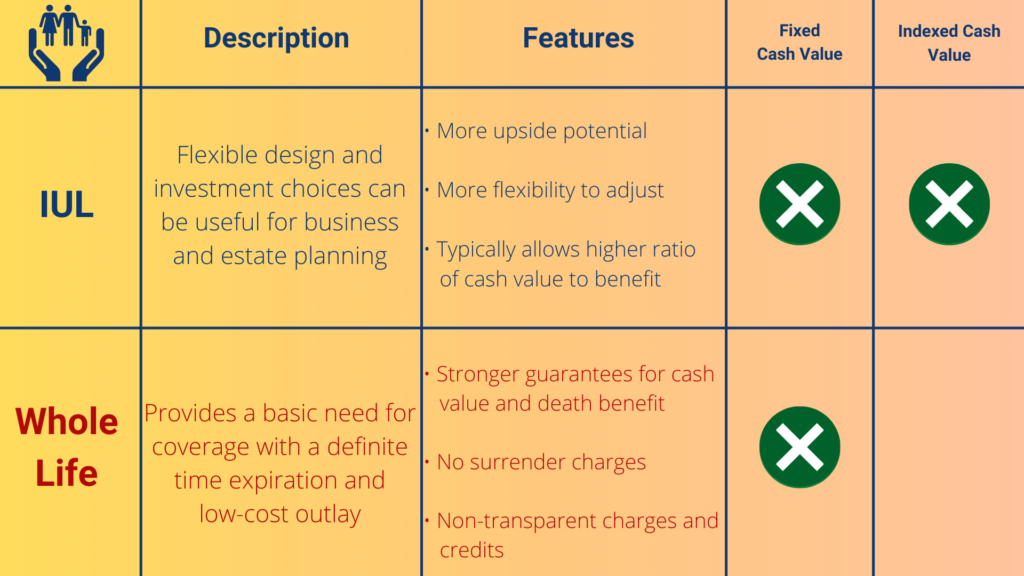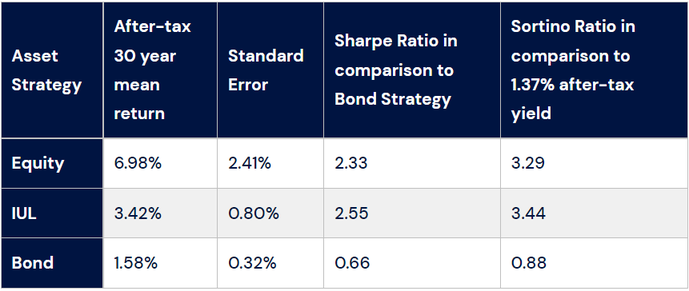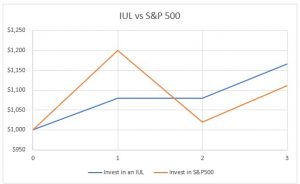All Categories
Featured
Table of Contents
1), typically in an effort to beat their category standards. This is a straw guy disagreement, and one IUL individuals love to make. Do they compare the IUL to something like the Vanguard Overall Securities Market Fund Admiral Show to no load, a cost ratio (ER) of 5 basis points, a turnover proportion of 4.3%, and an outstanding tax-efficient record of distributions? No, they contrast it to some awful proactively managed fund with an 8% lots, a 2% EMERGENCY ROOM, an 80% turn over ratio, and a terrible document of temporary resources gain circulations.
Shared funds usually make yearly taxed circulations to fund owners, also when the worth of their fund has actually gone down in worth. Shared funds not only require income coverage (and the resulting yearly tax) when the common fund is rising in worth, however can also enforce revenue tax obligations in a year when the fund has actually dropped in worth.
That's not exactly how shared funds work. You can tax-manage the fund, collecting losses and gains in order to lessen taxed circulations to the capitalists, however that isn't in some way mosting likely to alter the reported return of the fund. Only Bernie Madoff kinds can do that. IULs stay clear of myriad tax traps. The ownership of mutual funds may need the mutual fund owner to pay approximated taxes.

IULs are easy to position so that, at the proprietor's death, the recipient is not subject to either revenue or inheritance tax. The very same tax obligation reduction techniques do not work virtually also with mutual funds. There are many, frequently costly, tax obligation traps connected with the timed trading of shared fund shares, catches that do not apply to indexed life Insurance coverage.
Opportunities aren't really high that you're going to be subject to the AMT because of your shared fund distributions if you aren't without them. The remainder of this one is half-truths at finest. As an example, while it is real that there is no earnings tax obligation because of your heirs when they inherit the profits of your IUL policy, it is additionally real that there is no earnings tax obligation because of your beneficiaries when they acquire a common fund in a taxable account from you.
Pacific Life Indexed Universal Life Insurance
The federal inheritance tax exception limit mores than $10 Million for a couple, and growing each year with rising cost of living. It's a non-issue for the large majority of physicians, much less the remainder of America. There are much better methods to prevent estate tax problems than purchasing financial investments with reduced returns. Common funds may trigger income taxes of Social Protection advantages.

The development within the IUL is tax-deferred and might be taken as tax totally free revenue using loans. The plan owner (vs. the common fund supervisor) is in control of his/her reportable income, hence allowing them to reduce or even eliminate the tax of their Social Safety advantages. This is wonderful.
Below's another very little concern. It's true if you purchase a common fund for claim $10 per share right before the distribution date, and it disperses a $0.50 distribution, you are after that mosting likely to owe taxes (probably 7-10 cents per share) although that you have not yet had any type of gains.
But ultimately, it's truly regarding the after-tax return, not just how much you pay in taxes. You are going to pay even more in taxes by utilizing a taxed account than if you get life insurance coverage. Yet you're additionally possibly going to have even more cash after paying those tax obligations. The record-keeping needs for having common funds are significantly a lot more complicated.
With an IUL, one's records are maintained by the insurance provider, duplicates of yearly statements are mailed to the proprietor, and circulations (if any kind of) are completed and reported at year end. This one is likewise kind of silly. Of course you need to maintain your tax documents in instance of an audit.
Selling Universal Life Insurance
Hardly a reason to buy life insurance policy. Mutual funds are commonly part of a decedent's probated estate.
In enhancement, they go through the hold-ups and expenditures of probate. The profits of the IUL plan, on the other hand, is constantly a non-probate circulation that passes beyond probate directly to one's named beneficiaries, and is consequently exempt to one's posthumous lenders, undesirable public disclosure, or comparable hold-ups and expenses.
Medicaid disqualification and life time earnings. An IUL can give their owners with a stream of earnings for their whole life time, no matter of just how long they live.

This is valuable when arranging one's affairs, and converting assets to earnings prior to a nursing home arrest. Common funds can not be transformed in a comparable fashion, and are often considered countable Medicaid properties. This is one more stupid one supporting that inadequate individuals (you understand, the ones that require Medicaid, a federal government program for the poor, to spend for their nursing home) ought to utilize IUL rather than mutual funds.
Indexed Whole Life Insurance
And life insurance policy looks terrible when contrasted rather versus a retired life account. Second, people that have cash to acquire IUL over and past their pension are going to need to be dreadful at managing money in order to ever before get approved for Medicaid to spend for their retirement home prices.
Persistent and terminal disease cyclist. All plans will certainly allow a proprietor's very easy access to cash money from their policy, frequently forgoing any type of abandonment fines when such people suffer a major illness, require at-home care, or become constrained to an assisted living home. Common funds do not provide a similar waiver when contingent deferred sales costs still put on a common fund account whose owner needs to market some shares to fund the prices of such a remain.
Low Cost Universal Life Insurance
Yet you reach pay even more for that advantage (cyclist) with an insurance plan. What a lot! Indexed global life insurance coverage provides survivor benefit to the recipients of the IUL owners, and neither the proprietor nor the recipient can ever shed cash due to a down market. Shared funds provide no such warranties or death benefits of any kind.
I definitely don't require one after I get to financial freedom. Do I desire one? On standard, a buyer of life insurance policy pays for the real cost of the life insurance benefit, plus the costs of the policy, plus the profits of the insurance policy company.
Instant Universal Life Insurance Quote
I'm not entirely sure why Mr. Morais threw in the entire "you can't lose money" once more below as it was covered fairly well in # 1. He simply desired to repeat the ideal marketing point for these points I suppose. Again, you don't lose nominal dollars, but you can shed real bucks, in addition to face severe possibility expense due to low returns.

An indexed universal life insurance policy plan proprietor may exchange their plan for a completely various policy without causing earnings tax obligations. A common fund owner can not move funds from one mutual fund company to another without selling his shares at the former (therefore activating a taxed occasion), and buying brand-new shares at the last, commonly subject to sales costs at both.
While it holds true that you can exchange one insurance coverage for an additional, the factor that people do this is that the initial one is such a dreadful policy that even after getting a new one and going with the very early, negative return years, you'll still appear ahead. If they were offered the right plan the very first time, they should not have any need to ever trade it and undergo the early, negative return years once more.
Latest Posts
Best Universal Life
Index Universal Life Vs Roth Ira
Universal Life Insurance Tax Advantages